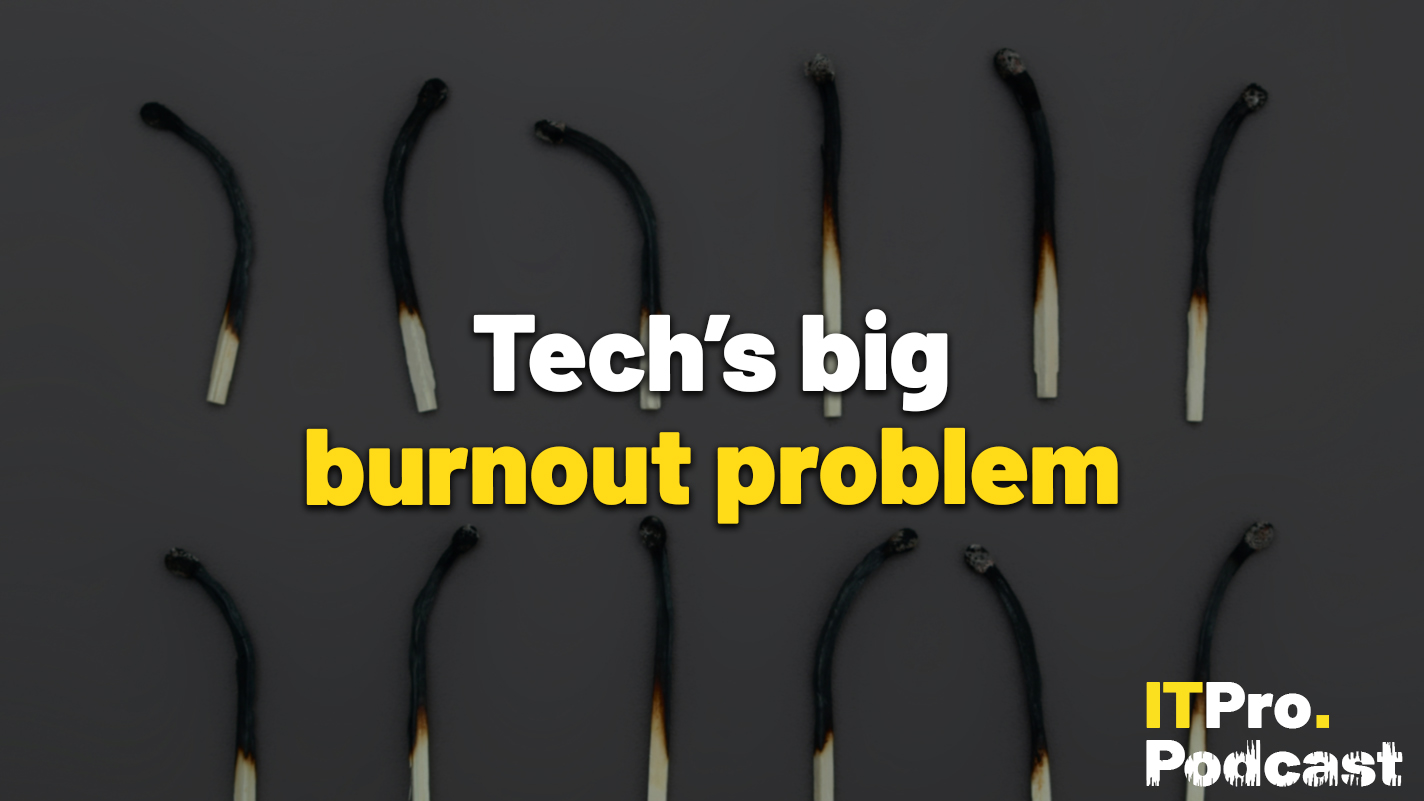Tech’s big burnout problem
Companies need to invest in their staff to stem resignations and disaffection


STEM careers are often touted as those with the best prospects, but when it comes to job satisfaction things may not be quite so rosy. A stark number of workers in the tech industry are currently looking to move jobs – either into a different tech role or into another field entirely.
Many more are facing the looming prospect of job cuts, while an increasing number are reporting poor working conditions. All this adds up to a disaffected and disengaged workforce – something leaders need to fix or risk losing valuable staff and the knowledge they hold.
What can companies do to stem this issue, and how practical are these solutions? In this episode, Jane and Rory discuss the state of employee wellbeing in tech and how leaders can start to address issues such as burnout and turnover.
Highlights
“I think it all comes around, eventually, to your reputation as a company. Are people going to want to stay at a firm, where crunch is always on the table? Particularly when it comes to the kind of crunch that we do see in the video game industry.”
“If you are in an industry that is paid hourly, then you might get some kind of unsocial hours pay … like, time and a half or double time. But if you're salaried that kind of doesn't happen. The most you can probably hope for is your time off in lieu, but like you say, if it's something that happens every month or every two months then you're not really getting the downtime. And I think that that has to be part of the answer here as well.”
“For a long time, the tech sector has been a job seekers market, there are more positions open and there are people to fill them. This is the skills gap. This is just the very crux of it. So in theory, it's like, ‘oh well, this job didn’t treat me well, I can up and leave and go somewhere else’. But if you have been through a couple of jobs like that and you find that actually, it's the same story everywhere, is this what's causing people to just move out of tech completely?”
Footnotes
- How to combat high staff turnover in tech
- Agile development is fading in popularity at large enterprises - and developer burnout is a key factor
- Surging cyber threats exacerbating security staff burnout
- Hybrid work means we’re burning out harder and faster than ever
- A third of cyber security pros report crumbling work-life balance
- Cyber security professionals are exhausted, and it's putting firms at greater risk of attack
- Fighting the ‘always on’ culture that’s savaging mental health in cyber security
- Boosting mental health support in the workplace
- UK's four-day week trial ends, leads to reduced burnout and sick days
- The company-wide benefits of mentorship in tech
- Gartner: Nearly half of cyber leaders to leave roles over mounting stress
- IT staff frustrated at rate of change in the workplace
- Five ways to prevent digital transformation burnout
- Can businesses use AI to beat burnout?
- AI employee monitoring will only burn bridges in the workplace
Subscribe
- Subscribe to The IT Pro Podcast on Apple Podcasts
- Subscribe to The IT Pro Podcast on Spotify
- Subscribe to the IT Pro newsletter
- Join us on LinkedIn
Get the ITPro daily newsletter
Sign up today and you will receive a free copy of our Future Focus 2025 report - the leading guidance on AI, cybersecurity and other IT challenges as per 700+ senior executives

Rory Bathgate is Features and Multimedia Editor at ITPro, overseeing all in-depth content and case studies. He can also be found co-hosting the ITPro Podcast with Jane McCallion, swapping a keyboard for a microphone to discuss the latest learnings with thought leaders from across the tech sector.
In his free time, Rory enjoys photography, video editing, and good science fiction. After graduating from the University of Kent with a BA in English and American Literature, Rory undertook an MA in Eighteenth-Century Studies at King’s College London. He joined ITPro in 2022 as a graduate, following four years in student journalism. You can contact Rory at rory.bathgate@futurenet.com or on LinkedIn.
-
 Cleo attack victim list grows as Hertz confirms customer data stolen
Cleo attack victim list grows as Hertz confirms customer data stolenNews Hertz has confirmed it suffered a data breach as a result of the Cleo zero-day vulnerability in late 2024, with the car rental giant warning that customer data was stolen.
By Ross Kelly
-
 Lateral moves in tech: Why leaders should support employee mobility
Lateral moves in tech: Why leaders should support employee mobilityIn-depth Encouraging staff to switch roles can have long-term benefits for skills in the tech sector
By Keri Allan
-
 Four-day weeks and Nadella's AGI skepticism
Four-day weeks and Nadella's AGI skepticismITPro Podcast As the Microsoft chief casts doubt on ultra-advanced AI systems, a famous security blogger has fallen victim to a classic attack
By Rory Bathgate
-
 Creating space for women in tech
Creating space for women in techITPro Podcast Tech's huge gender divide can only be tackled with more welcoming, proactive sectoral efforts
By Rory Bathgate
-
 What is the EU's AI plan?
What is the EU's AI plan?ITPro Podcast As the EU moves to enable AI innovation, it could end up striking the perfect balance between regulation and public support – especially as US AI laws become more complex
By Rory Bathgate
-
 The trends we’re watching in 2025
The trends we’re watching in 2025AI for security and sovereign cloud could be top driving forces in the coming year
By Jane McCallion
-
 The 2024 that didn't happen
The 2024 that didn't happenThese are the megatrends of the year that failed to materialise
By Jane McCallion
-
 What DORA means for business
What DORA means for businessITPro Podcast Stringent requirements for third party monitoring and ongoing resilience testing could help put businesses on the best track for security
By Rory Bathgate
-
 Can the four-day week work for tech?
Can the four-day week work for tech?ITPro Podcast As the four-day week gives Icelandic workers a boost, we also look at whether AI coding is up to scratch – and if OpenAI can keep its funding momentum
By Rory Bathgate
-
 How to sell cyber security without the FUD
How to sell cyber security without the FUDITPro Podcast A trusted network of cybersecurity marketing professionals can help professionals cut through at the board level
By Rory Bathgate